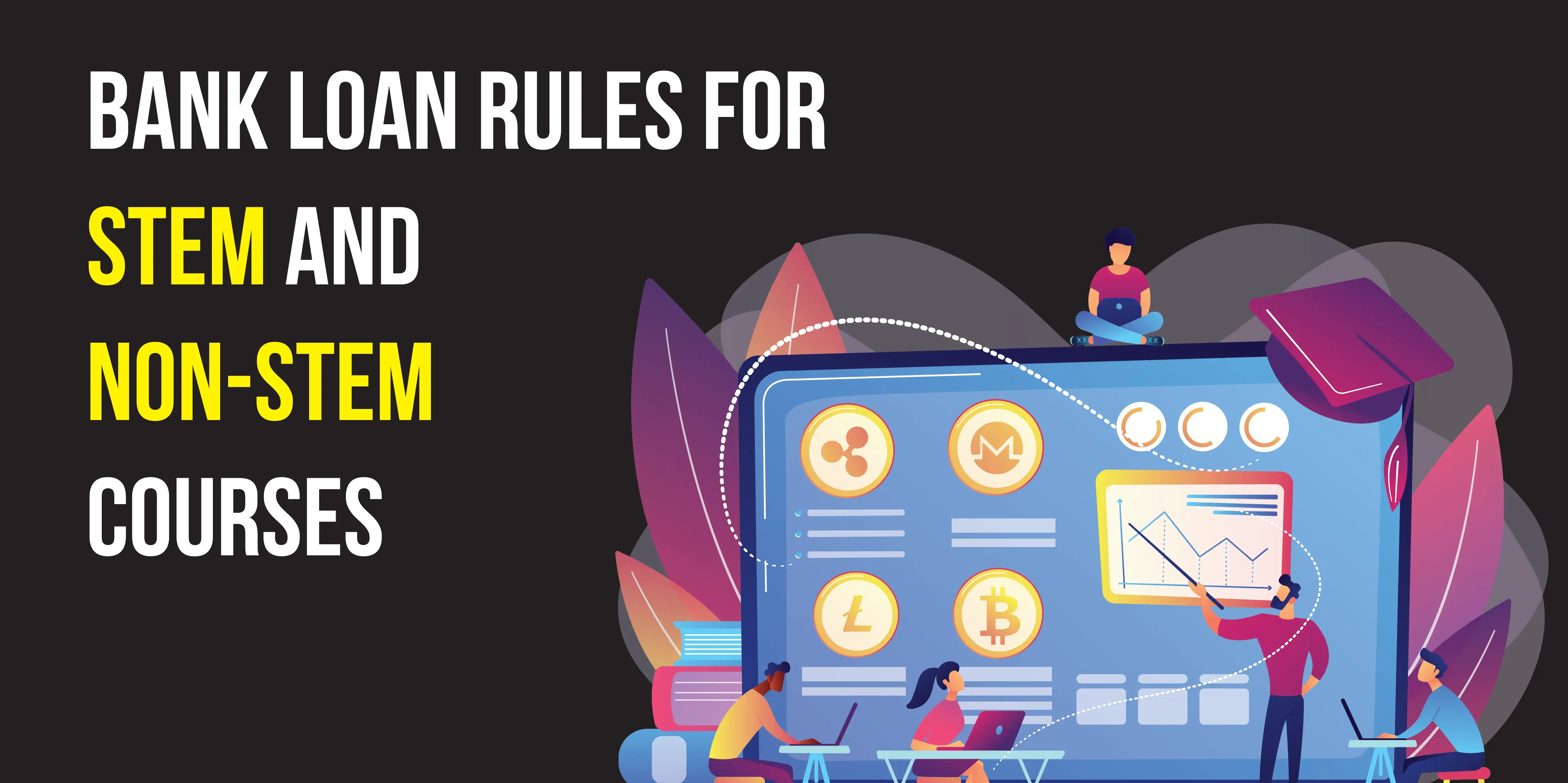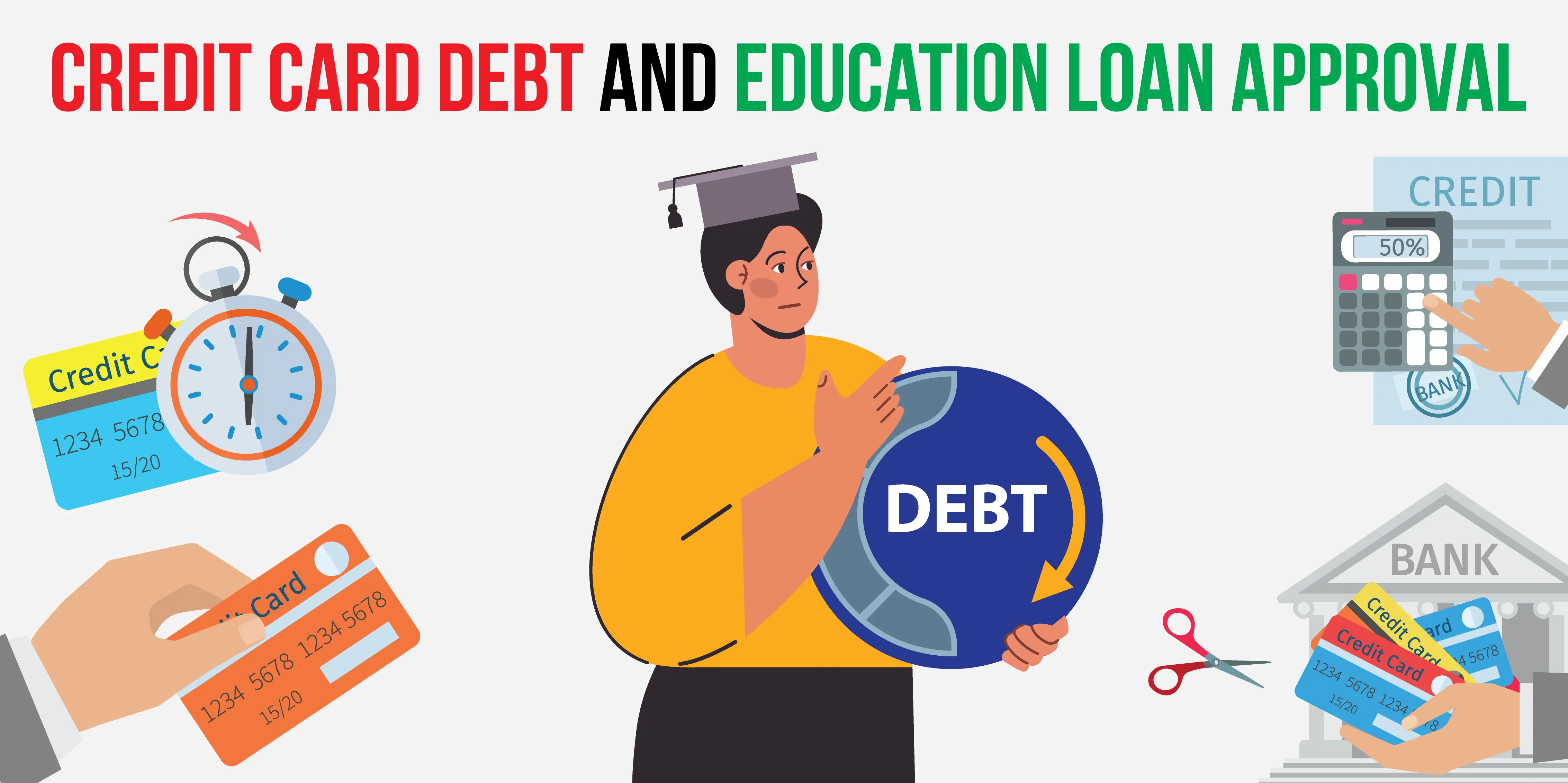https://www.wemakescholars.com/blog/bank-rules-for-stem-vs-non-stem-education-loans-explained
STEM vs Non-STEM: How Banks Decide on Education Loans
Abroad Education Loan | Updated on ()

Students, did you know that the type of course you choose for abroad Education can make a significant impact on Education loans? Yes, you heard that right. Lenders consider the type of course the student is opting for in higher Education before issuing Education Loans to students.
When planning for studies abroad, choosing the course is not just about passion; this can also affect your Education Loans. The type of course the student is choosing helps lenders calculate the risk associated with lending loans. STEM (Science, Technology, Engineering, and Mathematics) courses are of high priority and considered advantageous over non-STEM courses.
In this blog, we will discover the reasons why STEM courses are preferred for Education loans. We will also explore what difference it will make in Education Loans.
What are STEM and Non-STEM courses?
Let us understand what STEM and non-STEM courses are.
- STEM courses: STEM courses refer to the Educational courses that are focused on the fields of Science, Technology, Engineering, and Mathematics. The main aim of this course is to equip students with a comprehensive understanding of these technical fields, which enables them to apply the knowledge in the real - world problems. These courses also develop the technical, analytical, and problem-solving skills of students.
- Non-STEM courses: Non-STEM courses refer to the Education courses that do not fall under the category of Science. Technology, Engineering, and Mathematics. These courses include a wide range of subjects such as Humanities, Arts, business, law, and social sciences etc.. In contrast to STEM courses, non-STEM courses are primarily focused on critical thinking, communication, creativity, human behaviour, etc.
Bank's Rules for Approving Education Loans for STEM Courses
The rules for approving Education Loans for STEM courses are flexible than the terms with Non-STEM courses. Below are the basic rules by lenders to get an Education loan for STEM courses.
- University Ranking: universities are ranked based on the employability provided for their students. Most banks offer Loans to students who have been admitted to the top-ranked/recognized universities. To get an Education loan for STEM courses, a reputed university can improve the chances of Loan approval. Generally, universities from the US, UK, CANADA, GERMANY, AND AUSTRALIA are favoured by the lenders.
- Future Earning Potential: For students who are seeking Education loans for STEM courses, banks often evaluate the future earning potential. In some public banks, they solely consider this factor and issue an Education loan even without requiring collateral or a financial co-applicant. However, students have to meet the eligibility criteria mentioned by the lender.
- Financial Co-applicant Requirement: Generally, a financial co-applicant is required for unsecured Education loans to be approved. However, for students who are opting for STEM courses, a co-applicant with a minimum income of 3-4 LPA is sufficient to get an Education Loan.
- Loan amount and Collateral: For STEM courses, an unsecured loan amount of 40-50 lakhs is easily available from public and private lenders if the student is enrolled in one of the top 100 universities. However, a collateral loan option is also available, and students can get up to 1.5 cr, and the interest rates vary for collateral and non-collateral loans.
The Bank's Rules for Approving Education Loans for Non-STEM courses
Unlike Loans for STEM courses, the rules for non-STEM Education loans are not flexible but stringent. Read further to learn more:
- A Financial co-applicant is mandatory: To issue an Education loan for Non-STEM courses, the lenders would raise the income requirement bar for the financial co-applicant. Lender asks for a minimum income of 3-6 LPA to reduce the risk associated with offering loans for non-STEM courses.
- A decent CIBIL score: Lenders need a strict CIBIL score of above 700 to offer Education loans for non-STEM courses. This is to know the creditworthiness of the applicant and co-applicant, and to ensure the loan repayment capacity if employment opportunities are limited.
- Collateral requirement: To offer Education loans for non-STEM courses, lenders often ask for collateral to be pledged. If the university is not in the top 100, listed to reduce the risk associated with the loan lenders require collateral.
- Lesser Loan Amounts: Unlike STEM courses, the loan cap for non-STEM courses is limited. Students can get only up to 20 lakhs unsecured loan amount, depending on factors like the university, student profile, lender, etc.
- Higher interest rates: Compared to STEM courses, the interest rates charged for loans on non-STEM courses are higher, particularly with private lenders.
Loan Rule Comparison: STEM & Non-STEM
|
Category |
STEM Courses |
Non-STEM Courses |
|
Loan approval chances |
Higher |
Moderate |
|
Banks preference |
Higher |
Moderate |
|
Interest rates |
Lower |
Comparatively Higher |
|
Loan Amount |
Unsecured up to 50 lakhs |
Unsecured 20 to 40 Lakhs |
|
CIBIL Score |
685 Plus |
700 Plus |
|
Repayment Terms and Conditions |
Flexible |
Not Flexible |
Why Banks Consider STEM Courses for Education Loans
The following are the reasons why banks consider STEM courses for Education Loans
- High Employability Rate: One of the primary reasons banks consider a STEM course is its high employability rate. STEM courses have a high chance of employability due to their ongoing demand. This assures the Lenders that students with STEM courses have a high potential of repaying the loan and are less likely to default on the Loan.
- Higher Return on Investments: STEM graduates receive higher average salaries than any other graduates. The lender calculates the ROI before approving any Loan. STEM students with a wide range of opportunities in the global market, lenders are confident that their ROI is ensured.
- Global Demand: The rise in the demand for STEM fields is one of the main reasons banks consider offering Education Loans. STEM fields are essential in almost all technological and innovational advancements. These skills are used to address global issues and contribute to a better future. This demand leads to better career opportunities and higher earning potential. This ensures the lender that their loan amount can be repaid.
Obtaining an education loan to fund your studies can be quite challenging, with different lenders offering varying options. Contact WeMakeScholars, an organization partnered with over 15 public and private lenders. When you apply for an education loan through us, our experienced team will help you find the most suitable loan for your higher studies. Request a callback today to contact our team.
Lenders offering loans for STEM and non-STEM courses
Many lenders offer Education loans for both STEM courses and non-STEM courses.
- Public Banks: Many public banks offer Education Loans for both STEM and non-STEM courses. Compared to private lenders, public banks charge lower interest rates for these courses. Banks such as SBI, BOI, etc, are the top public lenders to offer Education loans for these courses.
- Private Banks: Many private banks are offering Education loans for the above STEM and non-STEM courses.Banks such as ICICI,AXIS,HDFC,IDFC are few among the top lenders in the private sector. Compared to public banks the interest rate is higher with private banks.
- NBFCs: There are many NBFCs that offer Education loans for STEM and non-STEM courses. AUXILO, CREDILA, INCRED, and AVANSE are a few of the top lenders in the NBFC category.
- International lenders: International lenders, such as MPOWER Financing, PRODIGY Finance, offer loans for these courses.
Required Documents for STEM & Non-STEM Loans
Below are the required documents to apply for an Education loan for STEM and non-STEM courses.
|
Document Style |
Details |
|
KYC Documents. |
|
|
Admission Letter. |
An admission letter from a recognised university. |
|
Co-applicant Documents. |
The co-applicant's documents, including the credit history, salary slips, and bank statements, as required by the lender. |
|
Collateral Documents. |
If the student has to go for secured loans, then the proper documents required by the lender must be submitted. |
Conclusion:
The type of course a student chooses plays an important role in obtaining an Education Loan.STEM courses have a higher potential of getting better Educational Loans. In this blog, we have explored why lenders prefer STEM courses for Education Loans. We have also explored the rules banks consider to approve loans for STEM and non-STEM courses.
However, the right guidance can simplify the Education Loan process. At WeMakeScholars, we have a dedicated financial officer who can guide and support you throughout the Education Loan process, making it stress-free. Contact us to increase your chances of Loan approval.





Kindly login to comment and ask your questions about Scholarships & Education Loans